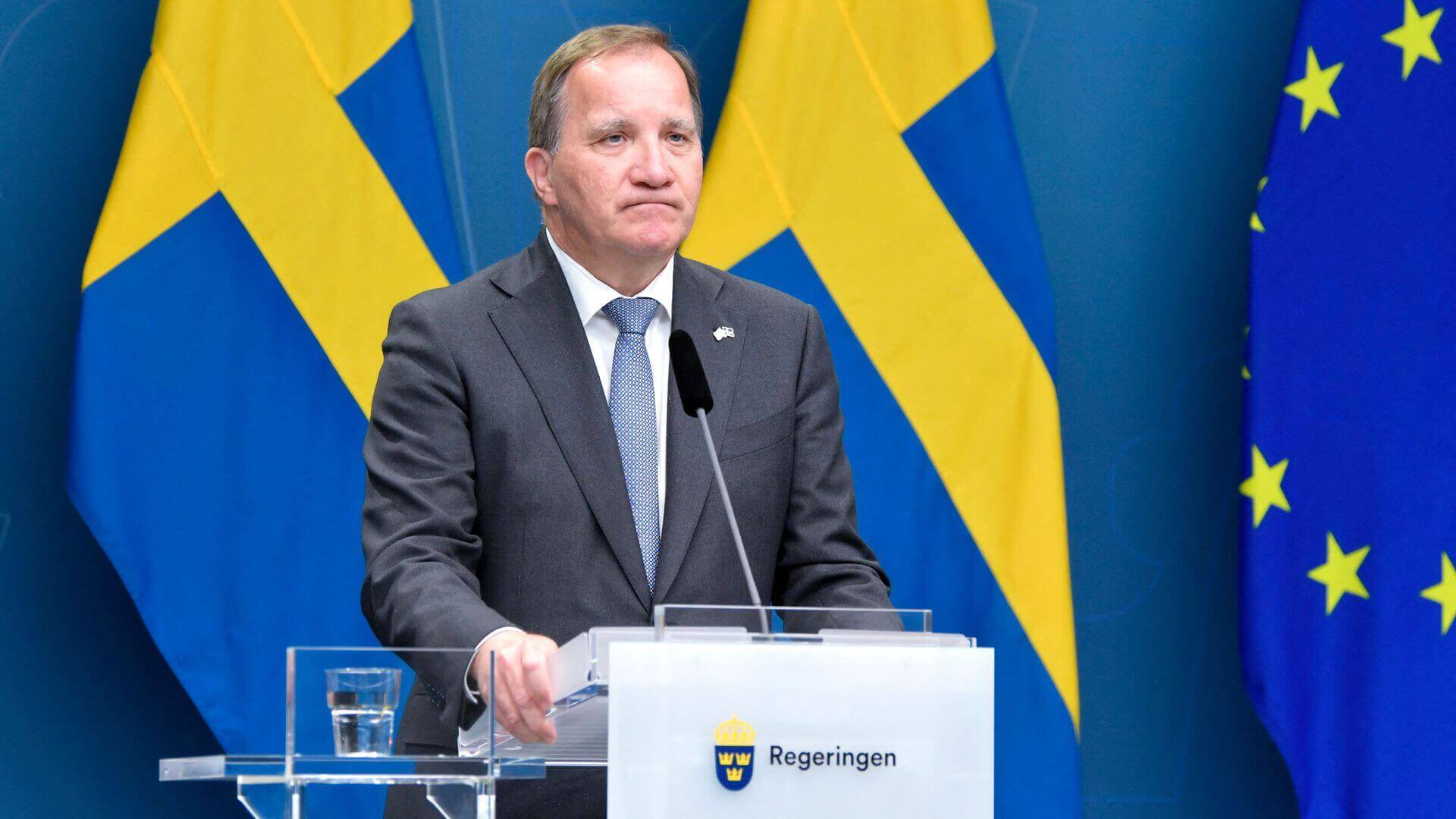The Swedish government was toppled on Monday after Prime Minister (PM) Stefan Löfven lost the no-confidence motion introduced by the Sweden Democrats, with support from the Left and Green Party, in the parliament. Löfven, who came to power in 2014, became the country’s first PM to lose a no-confidence vote. Over the weekend, Löfven held meetings with members of the parliament, landlords, and tenant organisations to secure a majority ahead of Monday’s vote. However, he was unable to secure the necessary support.
The opposition parties brought the no-confidence motion to voice their discontent against rental control reforms, rising real-estate prices, and housing shortages. Out of 349 members of the Swedish parliament, Riksdag, 181 voted for the motion, 109 voted against it, and 51 abstained. According to the Swedish Constitution, the PM has a week to choose between snap elections or resignation. If he decides to resign, the parliament speaker will invite a new party to form a government.
After losing the vote, Löfven said, “Regardless of what happens, my party and I will be available to shoulder the responsibility for leading the country.”
Meanwhile, the leader of the Sweden Democrats, Jimmie Åkesson, said, “The government was historically weak and should never have come to power.” Likewise, the leader of the Left Party, Nooshi Dadgostar, blamed the PM for the brewing housing crisis.
In fact, it was the Left Party’s withdrawal of support from the Social Democratic-Green Coalition that allowed the Sweden Democrats to introduce the motion. The Left Party cited a loss of confidence in the government’s proposal of abolishing rental controls over newly built properties, fearing that the deregulation of the rental market could increase prices for rental properties and further deepen the segregation between different social classes. “The PM’s proposal to overhaul the rent control would have allowed the landlords to freely charge rent for the new apartments, which is against Sweden’s social model,” the party said.
The rental controls in Sweden regulate prices and make living affordable in larger cities. However, these controls deter property developers from investing in properties for the rental market, leading to a year-long wait on contracts for people who wish to rent a home, since buying a property is becoming increasingly difficult due to rising home prices.
Political scientists and analysts believe that Löfven, being an excellent negotiator, could return to power, as nobody wants an extra election and because the ensuing parliamentary deadlock would allow him to return.
Due to the inconclusive 2018 general elections, Löfven’s party formed a minority government by establishing alliances with two other centre-right parties. The PM has asked for some time to hold discussions with the alliance parties. If Löfven decides to hold elections, the Swedish population will vote twice within a short period as Sweden has general elections every four years. The next elections are scheduled for September 2022. Opinion polls indicate a political crisis, as both centre-left social democrats and centre-right moderates enjoy equal public support.
Ruling Government in Sweden Toppled as PM Löfven Loses Confidence Vote
The Swedish Prime Minister, Stefan Löfven, lost no-confidence motion after Left Party withdrew support over rental reforms and soaring home prices.
June 22, 2021

SOURCE: AXIOS
